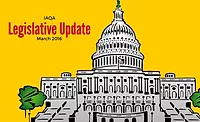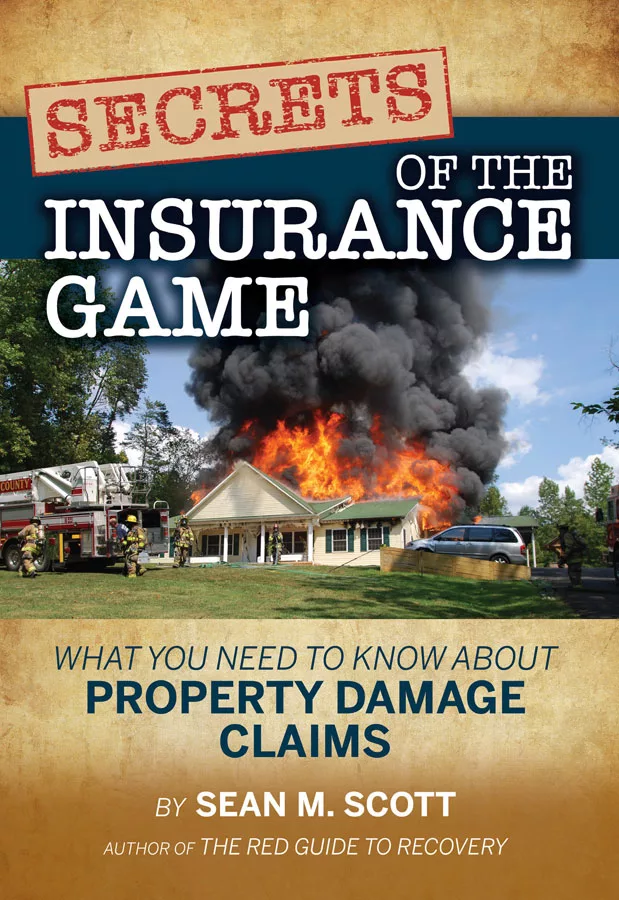IAQA Legislative Update: September 2015
Legionnaire's Outbreak, Mold, Lead Paint, & More
In August, Restoration & Remediation began a new partnership with the Indoor Air Quality Association’s Government Affairs Committee. Throughout the month, the committee works to assemble updates on laws and regulations from around the U.S. You can look for a detailed report from them toward the end of every month right here in R&R’s eNewsletter, and on www.randrmagonline.com.
- New York -
Legionnaire’s Disease
IAQA Government Affairs Committee is taking an initiative to monitor and report the progress of government regulations after the recent Legionnaires' disease outbreak in New York City. The Commissioner of The New York City Department of Health and Mental Hygiene has ordered all cooling towers in New York City to be evaluated and disinfected before August 27. All records of inspections and disinfection must be kept available to the City upon request.
The New York City Council also amended administrative code to require the owners of buildings with cooling towers to register with the City before September 16 and apply for annual certification by November 1, 2016. All cooling towers shall be inspected, tested, cleaned and disinfected in accordance with section 17-194.1 of the administrative code and the rules of the Department of Health and Mental Hygiene.
The New York State also passed an emergency ruling to require all cooling towers to be registered, inspected, certified, and tested for Legionella bacteria before Sept. 16, 2015. Building owners must also submit an acceptable cooling tower operation and maintenance plan to NYSDOH by March 1, 2016. Owners must test for Legionella bacteria every 90 days and report the results on the NYSDOH information system until such plan is in place. Any cooling tower confirmed to have Legionella bacteria present must be disinfected by a licensed commercial pesticide applicator. An interpretation of Legionella culture results from cooling towers water testing is provided in this ruling. This emergency ruling also requires health care facilities including general hospitals and residential health care facilities to adopt a Legionella sampling plan for its facilities’ potable water system and report the results. Necessary responsive actions should be taken if Legionella bacteria is detected.
IAQA Government Affairs is reaching out to new expert contacts on Legionella within the New York State Department of Health, specifically in the Office for Public Water Supply. Our intention is to increase our involvement in general on this subject, but get some specific questions answered for our members as well, such as:
- Who is a “qualified person” competent to collect samples?
- Are cleaning and sampling mandatory every 90 days?
- Is disinfection mandatory?
More information on Legionnaire’s Outbreaks:
Mold Licensing Update
Last month, we noted remediators must be licensed for mold remediation jobs by Jan. 1, 2016. In mid-September, IAQA Government Affairs spoke with two key personnel at the New York State Department of Labor (NYSDOL) regarding the ongoing implementation of licensing for mold remediation and assessment. Taking the big step of getting training providers actually teaching classes and giving certification exams is becoming urgent. IAQA is working to establish a constantly clear channel of communication between NYSDOL and IAQA members.
On this topic, IAQA Government Affairs did ask whether teaching mold remediation based on the IICRC S520 would be acceptable, and the response was that a training provider still needs to compare their course to the New York model, but a well-taught course on IICRC S520 would be “fine” and more than satisfy the basic requirements.
At the request of a member, we also asked about the length of time the evaluation process for training providers is expected to take. While it is taking longer with the initial applicants as the kinks in the process are worked out, it is expected the evaluation process should only take about a week. It is NYSDOL’s goal to have training providers approved and offering licensing classes by Nov. 1.
There were also questions from our members about the degree to which training providers must have mold experience. The agency requires demonstrable evidence that the instructors have knowledge of mold remediation and experience teaching the subject. We also asked about the exam for licensure. NYSDOL confirmed that at present the exam will have to meet NYSDOL requirements and it will be given by the training provider onsite at the conclusion of the course of instruction.
We are also trying to spread the word to encourage people to apply for approval ASAP. If you know a training provider that may be interested they do not need to be based in New York, and the courses do not have to be given in New York.
More information:
- California -
Senate Bill 655 will include mold in the “lack of proper sanitation” required for properties occupied by tenants in the housing standards’ health and safety code. The bill seeks to make the lack of proper sanitation a crime, including mold growth. In the bill, mold is given a formal definition and non-negligible causes for mold growth, including inadequate housekeeping and ventilation are explored. Recent revisions of SB 655 require that mold must be visible to be considered in the lack of sanitation.
- New Hampshire -
SB125 mandates that persons providing residential mold assessment services in NH for mold contamination in residential dwellings be certified by a third party. That includes people conducting an inspection, investigation, or survey of a dwelling or other structure to provide information to the owner regarding presence, identification, or evaluation of mold; the development of a mold remediation specification or protocol; and/or the Collection of (a) mold sample(s) for analysis will all require a third party certification.
- Rhode Island -
After IAQA Government Affairs gave a talk on regulatory rulemaking on lead paint to the quarterly meeting of LEHA (the Lead and Environmental Hazards Association) in June this year in Boston, we attracted the attention of Rhode Island.
This fall, the Rhode Island Alliance for Healthy Housing is hosting a series of evening dinner roundtables with invited attendees from a variety of interests that would pertain to mold remediation. The goal is to investigate issues which would be involved in the development of mold regulations, and potentially licensing for Rhode Island. Each session would have a keynote speaker. IAQA Government Affairs has been asked to be one of the keynote speakers for a session date TBD in October or November.
- Other Items of Note -
As reported in the august edition, IAQA has coordinators and special advisors assigned to the implementation of various mold legislation already passed in Maryland, Virginia and the District of Columbia. We are especially attempting to get clarifications from the Maryland Home Improvement Commission on mold licensing.
We are also working on the new administrative radon rules in Minnesota, and researching proposed modified asbestos training requirements in Virginia.
Lastly, IAQA and the Lead & Environmental Hazards Association (LEHA) are investigating policy interpretations affecting the use of encapsulants for lead-based paint in Massachusetts.
The IAQA Government Affairs Committee invites all of our members to become involved. Our mission is more than only observing government activity that affects our members. IAQA will take an active advocacy position when there is a consensus among our members. Moreover, we welcome IAQA members in good standing to join the committee, or to participate as special advisors on any particular government initiative.
If you are not currently an IAQA member, or maybe you were a member at some point, come join the IAQA of today: the most dynamic association of indoor environmental professionals. Government Affairs is just one of the programs working for our members and the betterment of our whole industry. Our new association with ASHRAE has provided unparalleled support and resources. Also, the IAQA membership categories and application process have been simplified, so it has never been easier to be part of the IAQA family!
If you want to contribute to IAQA Government Affairs, please join us! We want to hear from you: cwds@fiberlock.com.
September contributors included Cole Stanton, Wei Tang, Scott Herzog, Christine Robinson & Bruce White.
Looking for a reprint of this article?
From high-res PDFs to custom plaques, order your copy today!




